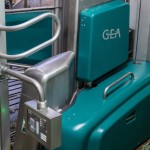Wilmot Cattle Co's Soil Carbon Sequestration - A Profitable Venture or Short-Term Fix?
Microsoft Deal Raises Questions about the Long-Term Viability of Soil Carbon Offsetting.
Added one year ago
By Hawke's Bay Future Farming Trust

Subtitle: Microsoft Deal Raises Questions about the Long-Term Viability of Soil Carbon Offsetting
In the heart of Australia's prime livestock grazing country, Wilmot Cattle Co in northern New South Wales is pioneering soil carbon sequestration, led by Alasdair MacLeod, son-in-law of media mogul Rupert Murdoch. Despite promises of significant profits, scientists are skeptical about the long-term effectiveness of this approach.
MacLeod, a former newspaper publisher turned soil carbon entrepreneur, advocates for soil carbon sequestration as a solution to decarbonize agriculture and combat global heating. His flagship property, Wilmot farm, gained attention when Microsoft purchased around US$1 million in carbon credits in 2021, contributing to the tech giant's commitment to being carbon negative by 2030.
However, a group of Australian scientists, including Dr. Elaine Mitchell, found discrepancies in the recorded soil carbon rise at Wilmot. The Carbon Plan, contracted by Microsoft to audit the scheme, raised concerns about its integrity. Despite criticisms, MacLeod remains confident in the deal, acknowledging that improvements can be made in the methodology.
To capitalize on the carbon credit market, MacLeod launched Atlas Carbon, a "carbon developer" guiding farmers through the process of obtaining credits. Farmers sign up for a 25-year carbon project, with credits issued based on soil carbon analysis. Critics argue that the market's focus should shift from selling carbon credits to "insetting," where farmers offset their own emissions and sell low-emission products to retailers like Woolworths.
Australian soil scientists emphasize the need for the regulator, Australia's Clean Energy Regulator (CER), to address flaws in the soil carbon offset scheme. Rainfall, a major driver of soil carbon fluctuations, raises questions about the long-term viability of sequestration projects. The University of Melbourne's Emeritus Prof Robert White warns that global heating may hinder long-term soil carbon sequestration.
While Wilmot Farms general manager, Stuart Austin, claims they are "ahead of the science," experts argue that soil carbon sequestration can only offset a fraction of livestock emissions. The 2017 global review suggests it can offset 20-60% of greenhouse gases, making it a "negligible dent" in overall emissions.
As farmers eagerly embrace carbon credit projects, questions about the long-term commitment, uncertainty in soil carbon levels, and the incongruity with the lengthy timescales required for effective carbon reduction strategies remain. Critics, like Danny Cullenward, a University of Pennsylvania climate economist, argue that incentivizing carbon credits can delay direct emissions reduction regulation, posing a risk to effective climate action.
In the evolving landscape of agricultural sustainability, the debate continues on whether soil carbon sequestration is a genuine solution or merely a short-term fix for the global challenge of climate change.
Join the conversation
Rod Menzies - Apr 5, 2024, 4:23 PM
Hi,
These comments have been raised a couple years ago, when another group of Australian scientists made a similar query. As often people automatically tend to think that the Wilmot Cattle Co soil sequestration credits were registered in the Australia's Clean Energy Regulator (CER) and its regulations/procedures automatically apply.
However, representatives of Wilmot Cattle Co have explained that the carbon credits were registered under the State of California USA "Carbon Credits ( Carbon Farming Initiative) Act 2011 Administered by Dept of Climate Change, Energy, the Environment and Water.
The soil testing was done by a renown and very well respected Australian company.
As I understand it, there is an option for New Zealand farmers to register certified soil carbon credits offshore in international recognized carbon registers like Australia, Verra, FAO etc.
I commend the good efforts, that the likes of the Hawkes Bay Future Farming Trust, Quorum
Sense and others, are doing to assist farmers to develop an increase in the level of soil carbon measurements at at greater soil depth, than that of perennial ryegrass white clover pastures.
Rod Menzies
Agribusiness Management Consultant, Australia.
Leave a comment
All comments are reviewed before they are published on the website. Your email address will not be published.




Family-Owned Farm Embraces Regenerative Agriculture to Grow and Educate


